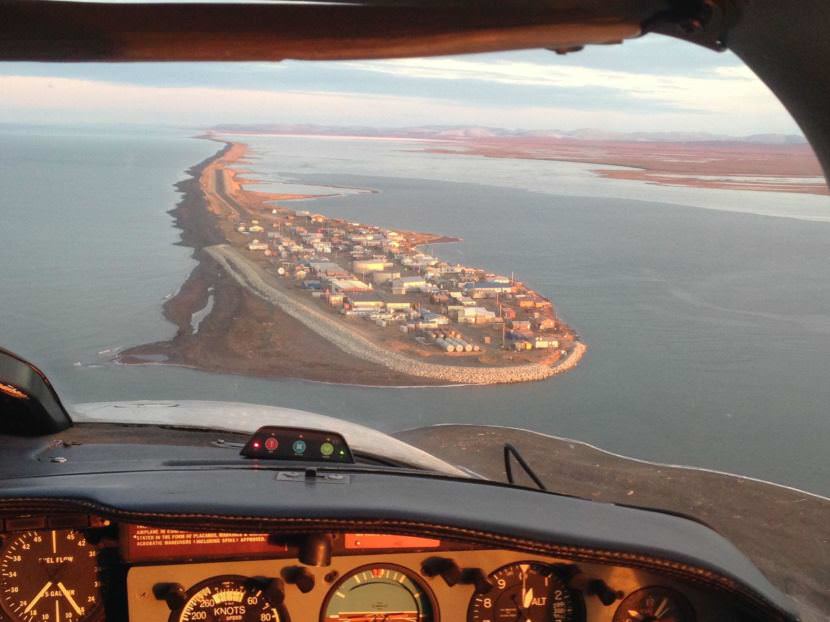
As climate change hits coastal communities in Alaska, many tribes are being forced to consider moving from their ancestral lands. But it’s not a uniquely Alaska challenge.
Last week, the Native Village of Kivalina joined four Louisiana tribes in a formal complaint to the United Nations. They allege the United States has not done enough to protect the human rights of villagers, as erosion creeps into their communities.
Chief Shirell Parfait-Dardar of the Grand Caillou/Dulac Band of Biloxi Chitamacha Choctaw tribe in coastal Louisiana has advocated for years to get officials to recognize the problems plaguing her community.
“Our food source is declining. Our health is declining,” Parfait-Dardar said. “So we have been fighting for many, many years, trying to adapt to all of these changes, trying to get officials to recognize what’s been going on.”
Thousands of miles away in the Northwest Arctic village of Kivalina, tribal administrator Millie Hawley tells a similar story about her home.
“Our little home is diminishing and losing ground every year,” Hawley said.
Hawley says that the village has had to adapt to changes, including less access to marine mammals for subsistence.
“A lot of food I grew up eating, we don’t harvest anymore,” Hawley said. “I’m eating mainly what we do get and that’s caribou and fish and not much more than the store-bought food.”
Due to coastal erosion, Kivalina has had to move its clinic, its school and some homes to stop them from being washed into the ocean.
“The foundation is so bad, the shifting of the ground,” Hawley said, “when other parts of the island move, it almost caused the home to crack in half.”
These cross-continental concerns are summarized in a formal United Nations complaint filed by Kivalina and four Louisiana tribes last week. Aside from Parfait-Dardar’s tribe, the other three Louisiana tribes are the Isle de Jean Charles Band of Biloxi-Chitimacha-Choctaw Indians of Louisiana, the Pointe-au-Chien Indian Tribe and the Atakapa-Ishak Chawasha Tribe of the Grand Bayou Indian Village.
The complaint alleges that the federal government has “failed to protect the human rights of Tribal Nations in Louisiana and Alaska, who are being forcibly displaced from their ancestral lands.”
Parfait-Dardar with the Grand Caillou/Dulac says that she’s tried in the past to get help from the federal government, but her concerns went unanswered.
“Every single time I ask, it’s the same response,” Parfait-Dardar said. “‘We can’t do that. The (Army) Corps would never do it. We don’t have the funding for that.’ It’s always an excuse.”
The tribes hope that investigators with the UN will light a fire under state and federal agencies to do something. Parfait-Dardar says that she’s hopeful that the UN will listen because it’s not just North America that is struggling with climate change.
“I know that the United Nations is getting many, many complaints from all over the world that are dealing with a lot of the same similar issues that we have been dealing with,” Parfait-Dardar said.
While Parfait-Dardar and Hawley maintain a strong sense of optimism, it’s hard to tell how seriously the federal government will take United Nations recommendations. The Trump administration has not been cooperating with human rights investigators since 2018.
Hawley in Kivalina says that if something isn’t done to help her community, her tribe and tribes across Alaska will lose their traditional way of life.
“We have children and grandchildren that we’re looking out for,” Hawley said. “We want to make sure that they have safe ground, they are able to build homes, able to live in this area where I grew up, where they grew up.”
As they wait for a response, Hawley says the village is moving forward on relocation projects, including a short bridge that is part of their evacuation road. Hawley says it’s set to be completed in October, but the changing landscape means that deadline is still up in the air.